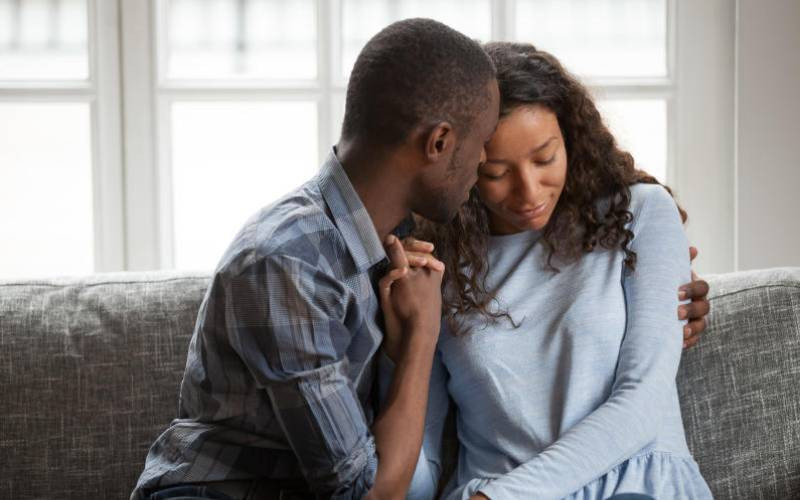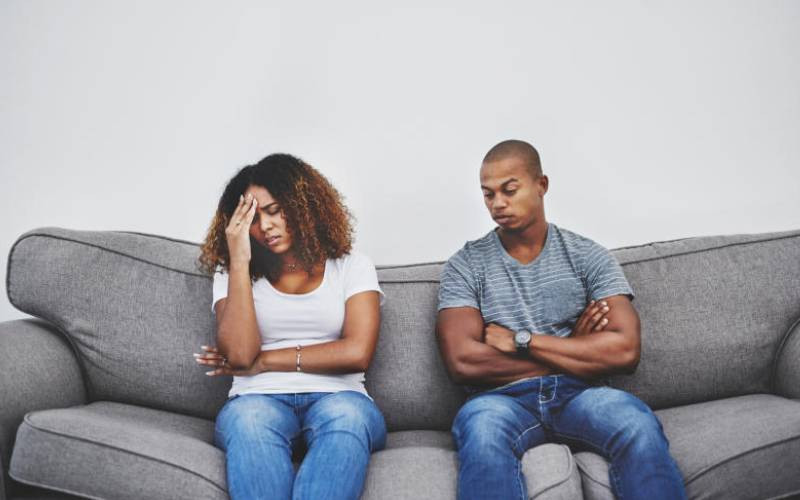
The hearings of the presidential election petitions came to an end yesterday with focus now shifting to the Supreme Court judges as an anxious country waits for their verdict.
After three days of push and pull between lawyers, they did their part and the work is no longer in their hands but in the hands of the seven judges who will in the next two days determine the fate of the presidential election.
"We will give our judgment on Monday September 5 and as you leave, we only ask that you continue praying for us so that we can render a judgment that brings harmony to our country, promotes constitutionalism, the rule of law and brings joy to the country," said Chief Justice Martha Koome.
With only two days and the amount of work that lies ahead of them, Justice Koome, her deputy Philomena Mwilu, and Judges Mohamed Ibrahim, Smokin Wanjala, Njoki Ndungu, Isaac Lenaola and William Ouko stated that they will do their best to deliver a judgment that the public will be in agreement with.
Just like the presidential election contest where each side exuded confidence of winning, lawyers representing Azimio candidate Raila Odinga and those for president-elect William Ruto stated that they have done their best and hope the court will agree with their submissions.
Raila and his running mate Martha Karua's side had the support of six petitioners while Dr Ruto had the Independent Electoral and Boundaries Commission (IEBC) on his side claiming that they have done enough to convince the judges that the election was credibility.
As the judges retired to go through hundreds of pages of filed documents and oral submissions by the parties, the last day of the hearings was marked by each party trying to answer the over 40 questions they asked.
Lawyer Julie Soweto representing Raila and Karua raised the elephant in the room in answering the question on staging and external interference with the IEBC system through live evidence from the commission's public portal.
"Our evidence as demonstrated live before this court that there was staging where forms were intercepted, changed and then re-uploaded. The evidence shows fingerprints of foreigners who determined the presidential election," said Soweto.
In the evidence she showed the court, she clicked one of the Forms 34A which showed the name of Venezuelan Jose Camargo while the other showed two forms from Bungoma and Nyeri which had the same serial number of the KIEMS kits.
Justice Isaac Lenaola had asked the parties to give a context of staging and tampering of Forms 34A and an explanation of how the interference happened. IEBC, in its response through lawyer Mahat Somane, maintained that there were no foreigners and that the form shown in their portal was not the original forms with security features.
Since all the petitions challenging declaration of Dr Ruto as president-elect, the judges had sought to know whether IEBC chairman Wafula Chebukati could act alone in the verification of presidential results and again the parties could not agree.
The judges had also asked if the commission will stop functioning if the chairman became indisposed, resigned or died in the middle of a presidential election.
IEBC in its response stated that it is only the chairman with the mandate as the presidential election returning officer and was justified to declare the results in the absence of four commissioners who disowned the results.
'Personal property'
But lawyer Paul Mwangi representing Raila argued that the chairman violated the constitution and feigned ignorance on the basis of unconstitutional gazette notice giving him power to control the commission as personal property.
Lawyer Zehrabanu Janmohamed submitted that IEBC should function as a unit but the chairman became a biased referee and made the other commissioners like flower girls and page boys.
"It was like the chairman was the bride and the other commissioners flower girls and page boys. The constitution talks about the commission, not commissioners or the chairperson. He cannot be be more equal than the others," she said.
The judges had also asked the time the commission became dysfunctional to a point where Vice-chairperson Juliana Cherera, Justus Nyangaya, Irene Masit and Francis Wanderi walked out and disowned the presidential election results.
Although the commission denied existence of a division, the four commissioners through lawyers Jotham Arwa, Apollo Mboya and Issa Mansur explained that the disconnect started way back in April when they discovered certain irregularities in preparation for the election.
"The commissioners started protesting as early as April when they realised there was problem but feared to make their protests public because they knew it will erode public confidence in the commission," said Arwa.
At Bomas of Kenya, the lawyers stated that the four commissioners were not involved in the tallying process and only given results o read some of which had errors, and that at the end of the process decided to walk out when the irregularities they had noted were not addressed.
One question which the judges raised and the lawyers could not agree on was the correct voter turnout and its importance on calculating whether a candidate garnered 50% plus one vote to meet the threshold of being declared president in round one.
Worked backwards
Mr Somane for IEBC argued that the turnout was 64.6% as captured in the KIEMS kits and that the commission does not look at the turnout as a measure to determine the percentage in the presidential election.
But Busia senator Okiya Omtatah argued that the commission worked the figures backwards when Chebukati himself had publicly declared that the turnout was 65.4% and the figure was expected to go higher once the voters identified manually were factored.
Senior counsel Otiende Amollo for Raila and Karua claimed that the voter turnout was being manipulated to achieve a certain figure and declare Ruto as president-elect.
"The question of voter turnout became a moving target where the chairman and the director of voter registration gave conflicting figures. The constitution is clear that the denominator of calculating the percentage is the total number of registered voters," said Amollo.
On the question asked by the judges on why the commission announced the results without publicly announcing results from 27 constituencies, IEBC maintained that the chaos at Bomas prevented them while the other parties said there was no hurry since he had an additional day.
"We have adequately explained the circumstances under which the chairman declared results without those of the 27 constituencies. He had made considerations of his staff who were facing arrests and intimidation and decided not to wait for another day," said lawyer George Murugu.
The judges had also asked what will happen if they nullify the election and the chairman is found unsuitable to conduct the presidential election.
Whereas lawyer Fred Ngatia representing Dr Ruto and Prof Githu Muigai for IEBC stated that there will be constitutional crisis is that were to happen, the other petitioners claimed that there will be no vacuum since the Constitution has provided a mechanism to address such issues.
"There is no lacuna in the law if you nullify the presidential election. The IEBC chairman is not immortal, even if he resigns today the country and the commission will move on and fresh elections will be held within 60 days," said lawyer Willis Otieno.
The judges had also asked the impact of the postponing of gubernatorial elections in Mombasa and Kakamega where IEBC stated that it had no effect on the presidential results but the petitioners explained that it led to suppression of voters.
According to lawyer Paul Mwangi, some voters only go to polling stations to vote for a particular candidate and if they are not in the ballot then they are discouraged from going to vote.
Justice Smokin Wanjala had also asked IEBC to explain the story about the Venezuelans and whether they penetrated to its systems.
Whereas IEBC insisted the Venezuelans left the country before election day, the petitioners argued they were in the country and accessed the system several times as confirmed by audit report sanctioned by the court.
On the question of rejected votes, value of stray votes and the variance of presidential votes and other seats, IEBC explained there was only a variance of 24,000 which can be accounted for as stray ballots.
"If you look at our report, there was only an average of two stray ballots per polling station. The commission was extremely hands on and we recorded all the stray votes," said Somane.
On the question that the IEBC systems were tamper proof, Amollo submitted that the system was captured by foreigners which is worse than state capture.
 The Standard Group Plc is a multi-media organization with investments in media
platforms spanning newspaper print
operations, television, radio broadcasting, digital and online services. The
Standard Group is recognized as a
leading multi-media house in Kenya with a key influence in matters of national
and international interest.
The Standard Group Plc is a multi-media organization with investments in media
platforms spanning newspaper print
operations, television, radio broadcasting, digital and online services. The
Standard Group is recognized as a
leading multi-media house in Kenya with a key influence in matters of national
and international interest.










